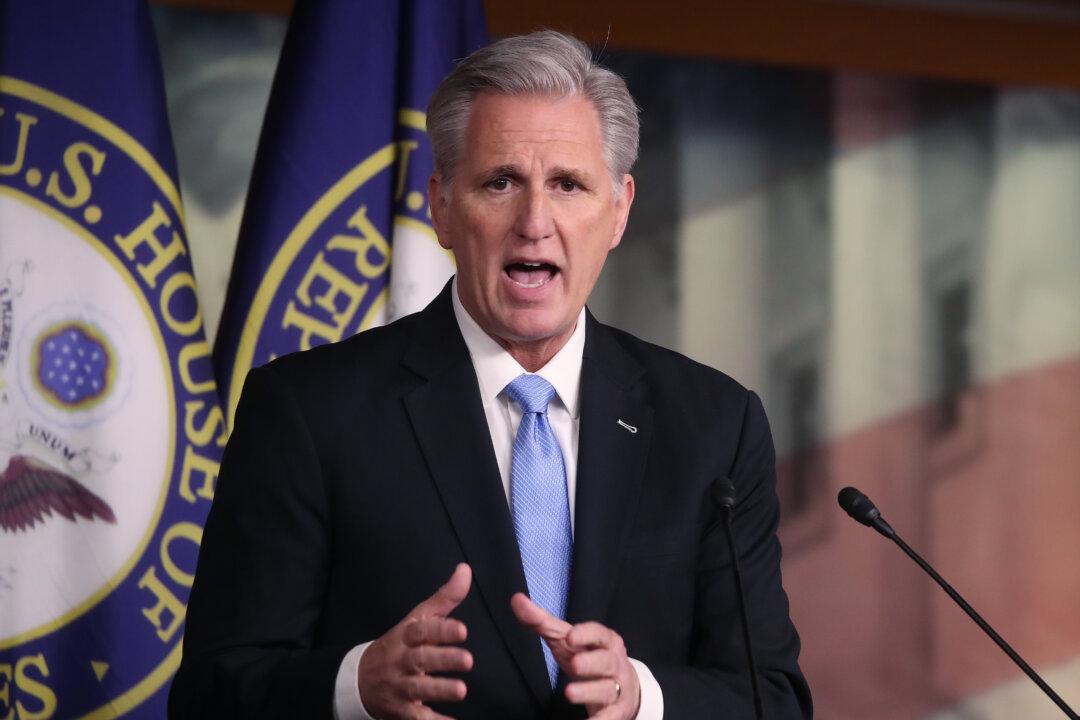House Republican leaders have condemned the failure of Democrats who controlled both chambers of Congress and the White House for waiting until the last minute to “jam” through an omnibus spending bill that no one will be able to read before voting on.
“The Democrats have been in power, they have had the House, the Senate, and the presidency, but they did not do their work and they should not jam us now,” House Minority Leader Kevin McCarthy (R-Calif.) told reporters on Dec. 14.





